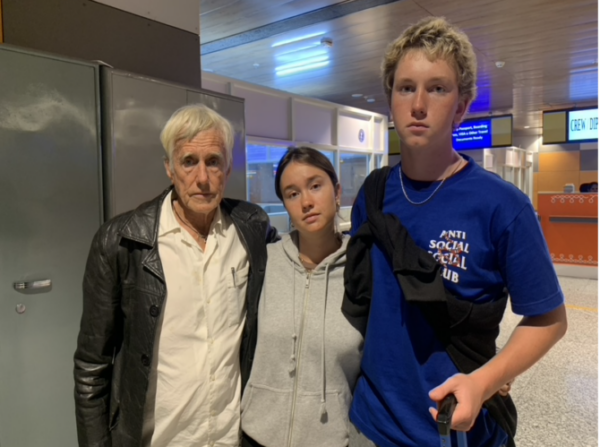Australian film-maker refused entry into India
September 21, 2024
Australian film-maker David Bradbury has been refused entry into India, after flying into Chennai from Bangkok on 10 September with his two children, aiming to take a holiday.
Bradbury, an Oscar-nominated film-maker who is an anti-nuclear campaigner, said all three members of his family had valid visas issued by the Indian consulate in Canberra before they left Australia on 7 September.
He said he was denied entry because of a film he had made in India in 2012, about the protests against a nuclear power plant in Kudankulam, about two km away from the fishing hamlet of Idinthakarai in the southern district of Tirunelveli in Tamil Nadu.
When Bradbury submitted his passport to immigration at Chennai, he was told that he would not be granted entry into the country.
His children were, however, allowed to enter the country.
“During the course of the rest of the day and into the night various immigration plainclothes police would come and interrogate me,” Bradbury said in a statement.
They asked him what he was doing in India, what he had done during his previous visit in 2012, who he knew in India and whom he had communicated with before coming to the country.
He was also asked to unlock his phone and give it to the authorities, something he refused to do.
“I was cold and asked for my long trousers and socks which were in my suitcase and some medication I was taking for an enlarged prostate,” Bradbury wrote. “They never got them for me, only an hour before they forced me back onto the flight to Bangkok. My bag still hasn’t arrived here in Bangkok.
“Again, I asked if I could make a phone call to the Australian embassy in Delhi, but that request was ignored.”
Bradbury is now in Bangkok after being deported from India. He said he would be spending one more week in the Thai capital while his children visited places in India which he had intended them to visit.
While en route to India, he screened his latest documentary, Death is a lady, a tribute to Vietnam war cameraman and journalist, the legendary Neil Davis who was tragically killed in a 24-hour coup in Bangkok 39 years ago. The screening raised $407 for the children of Gaza.
“What had caused the cancellation of my Indian visa? Over the course of the afternoon and being interrogated by Indian Immigration plainclothes officers, I quickly concluded the Indian government had not forgiven me for making a film about the anti-nuclear protest by poor fisherfolk,” Bradbury said.
The nuclear plant in question was proposed in 1986 and an agreement to build it was signed between the then Soviet Union and India in 1988.
Due to continuing protests, the plant was delayed. The idea was revived in 2000, and construction began under the then Indian government of Atal Bihari Vajpayee in 2001.
The plant became operational in 2013 and a second 1000MW unit was commissioned in August 2016, through an agreement between Russian President Vladimir Putin, Prime Minister Narendra Modi and then Tamil Nadu chief minister late Jayalalitha Jayaram.
Kudankulam has the highest capacity of any nuclear plant in India, with 2000 MW currently installed and 2000 MW under construction. Once completed, it will have a capacity of 6000 MW. It is also the only nuclear plant in India that uses pressurised water reactors based on Russian technology.

